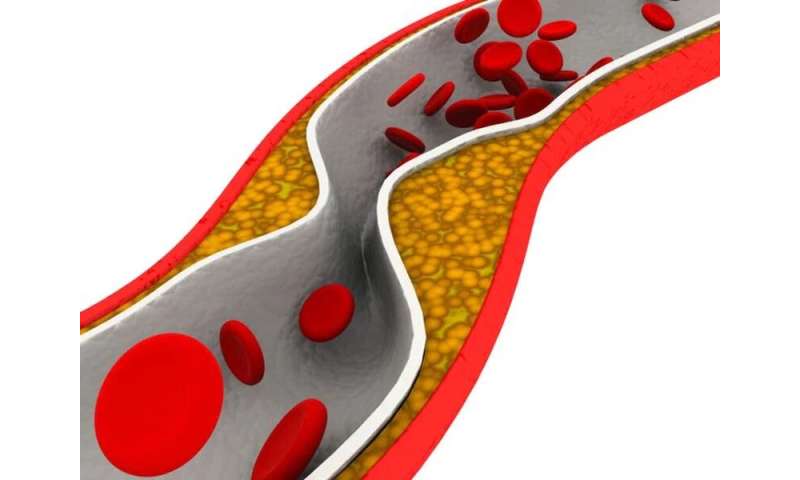
(HealthDay)—For patients with elevated lipoprotein(a) levels and established cardiovascular disease, hepatocyte-directed antisense oligonucleotide AKCEA-APO(a)-LRX (APO(a)-LRX) reduces lipoprotein(a) levels, according to a study published online Jan. 1 in the New England Journal of Medicine.
Sotirios Tsimikas, M.D., from the Sulpizio Cardiovascular Center at the University of California, San Diego, and colleagues conducted a randomized, double-blind, placebo-controlled, dose-ranging trial involving 286 patients with established cardiovascular disease and screening lipoprotein(a) levels of at least 60 mg/dL. For six to 12 months, patients received either APO(a)-LRX (20, 40, or 60 mg every four weeks; 20 mg every two weeks; or 20 mg every week) or saline placebo subcutaneously.
The researchers observed dose-dependent decreases in lipoprotein(a) levels, with mean decreases of 35, 56, 58, 72, and 80 percent at a dose of 20 mg every four weeks, 40 mg every four weeks, 20 mg every two weeks, 60 mg every four weeks, and 20 mg every week, respectively, compared with 6 percent for placebo. With respect to platelet counts, liver and renal measures, or influenza-like symptoms, there were no significant differences between any APO(a)-LRX dose and placebo. Injection-site reactions were the most common adverse events.
“Elevated levels of lipoprotein(a) are a cardiovascular risk factor for which no effective pharmacological therapy currently exists,” the authors write. “In this trial, we found that APO(a)-LRX provided potent reductions in levels of lipoprotein(a) in patients with cardiovascular disease.”
Source: Read Full Article
